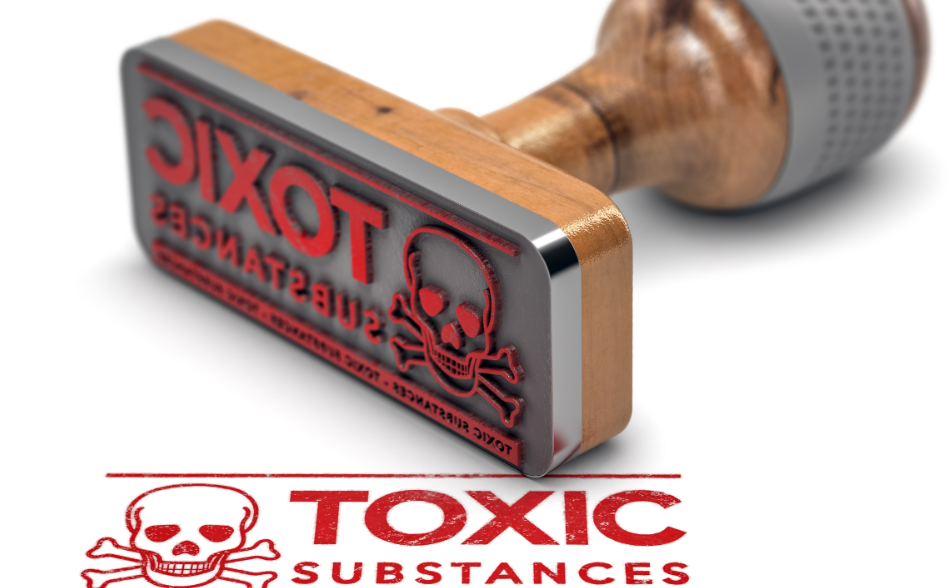Toxins are an unavoidable part of modern life. From the air we breathe to the food we eat, exposure to harmful substances has become an unfortunate norm. These toxins—whether from natural processes, industrial pollutants, or lifestyle choices—can accumulate in our bodies and contribute to a wide array of diseases. The more toxins we carry, the greater their ability to attract even more, amplifying their damaging effects. This article explores the sources of these toxins, their impact on human health, and practical steps to reduce exposure and detoxify your body.
The Origins of Toxins in the Body
- Toxic Waste from Cellular Metabolism
- Even in a healthy body, cells produce waste as part of normal metabolic processes. This waste is typically eliminated via the lymphatic system, kidneys, liver, and skin. However, when these systems are overwhelmed or impaired, waste products can accumulate, leading to inflammation, oxidative stress, and tissue damage.
- Processed Foods
- Processed and ultra-processed foods often contain preservatives, artificial colors, flavors, and unhealthy fats that can burden the liver and other detox organs. Additives like high-fructose corn syrup, MSG, and artificial sweeteners can disrupt hormonal balance and increase inflammation.
- Heavy Metals Heavy metals are among the most harmful toxins that accumulate in the human body. They are pervasive in the environment and nearly impossible to avoid entirely. The most common heavy metals and their sources include:
- Lead: Found in old paint, contaminated water, soil, and some imported goods.
- Mercury: Present in certain fish (e.g., tuna, swordfish), dental amalgams, and industrial emissions.
- Cadmium: Released by cigarette smoke, batteries, and industrial waste.
- Arsenic: Found in contaminated drinking water, pesticides, and rice.
- Aluminum: Present in antiperspirants, cookware, vaccines, and some processed foods.
- Barium: Used in drilling and industrial applications; may contaminate water supplies.
- Nickel: Found in stainless steel cookware, electronics, and some jewelry.
- Uranium: Naturally occurring in some soils and water sources, particularly near mining areas.
How Toxins Harm the Body
- Cellular Damage
- Toxins can disrupt cellular processes, damage DNA, and impair the function of mitochondria—the energy powerhouses of cells. This contributes to fatigue, aging, and the development of chronic diseases.
- Immune System Suppression
- The immune system can become overwhelmed when constantly fighting off the effects of toxins, leaving the body more susceptible to infections and autoimmune disorders.
- Neurological Disorders
- Heavy metals like lead and mercury are neurotoxic, meaning they can damage brain cells and interfere with neurotransmitter function. This can lead to conditions such as memory loss, brain fog, anxiety, and even neurodegenerative diseases like Alzheimer’s.
- Endocrine Disruption
- Many toxins act as endocrine disruptors, mimicking or blocking natural hormones. This can lead to thyroid disorders, infertility, and metabolic imbalances.
- Cancer Risk
- Long-term exposure to carcinogenic toxins like arsenic, cadmium, and barium can increase the risk of cancers by causing DNA mutations and promoting inflammation.
- Cumulative Toxicity
- The more toxins that accumulate in the body, the more they attract additional toxins, creating a vicious cycle of increasing toxicity and harm.
Common Routes of Exposure
- Air: Pollutants from industrial emissions, vehicle exhaust, and indoor air contaminants like mold.
- Water: Contaminants like heavy metals, pesticides, and chlorine in drinking water.
- Food: Processed foods, non-organic produce, contaminated seafood, and additives.
- Household Products: Cleaning agents, cosmetics, and personal care items containing parabens, phthalates, and synthetic fragrances.
- Medications and Vaccines: Some medications and vaccines contain aluminum or mercury-based preservatives.
- Environmental Exposure: Living near industrial sites, landfills, or areas with contaminated soil or water.
Preventing Exposure to Toxins
- Choose Organic Foods
- Opt for organic produce to reduce exposure to pesticides and herbicides.
- Avoid processed foods and focus on whole, nutrient-dense options.
- Filter Your Water
- Use a high-quality water filter to remove heavy metals, chlorine, and other contaminants.
- Improve Air Quality
- Use air purifiers and keep your home well-ventilated. Consider adding houseplants like spider plants or peace lilies to help filter indoor air.
- Switch to Natural Products
- Choose natural cleaning agents, cosmetics, and personal care products. Avoid aluminum-based deodorants and synthetic fragrances.
- Be Mindful of Seafood
- Limit consumption of high-mercury fish and prioritize smaller, sustainably sourced fish like sardines or wild-caught salmon.
- Avoid Plastic
- Use glass or stainless steel for food storage and water bottles to avoid exposure to BPA and phthalates.
How to Eliminate Toxins from the Body
- Stay Hydrated
- Proper hydration supports kidney function and helps flush toxins. Add a squeeze of lemon to your water to support liver detoxification.
- Sweating
- Sweat out toxins through regular exercise or infrared sauna therapy.
- Support Liver Function
- Eat foods like garlic, beets, cruciferous vegetables (e.g., broccoli, kale), and turmeric to support the liver’s detox pathways.
- Detoxify with Chelation Therapy
- For heavy metal detoxification, chelating agents like EDTA or natural binders such as chlorella, cilantro, and spirulina can help remove metals.
- Use Activated Charcoal
- Activated charcoal binds to toxins in the gut, preventing their absorption and aiding elimination.
- Focus on Gut Health
- A healthy gut supports overall detoxification. Eat prebiotic and probiotic-rich foods like yogurt, kefir, and fermented vegetables.
- Epsom Salt Baths
- Epsom salt baths provide magnesium and promote the release of toxins through the skin.
- Supplement Wisely
- Consider supplements like milk thistle, NAC (N-Acetyl Cysteine), and glutathione to support detoxification at the cellular level.
Toxins are an inevitable part of life, but their impact on health is far from inevitable. By understanding their sources, minimizing exposure, and supporting the body’s natural detoxification processes, you can reduce the burden of toxins and enhance your well-being. Remember, small, consistent changes in lifestyle and habits can have a profound impact over time, helping you break free from the toxic cycle and protect your health for years to come.
